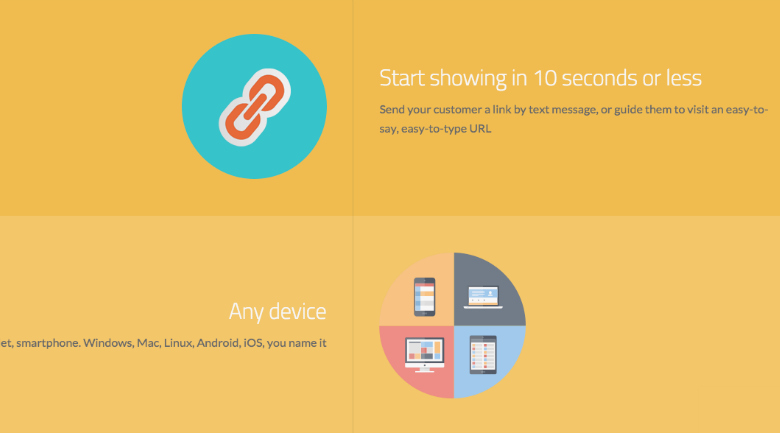 I was talking with my father the other day – a mutual acquaintance had called us both, an agent in a different city who in the course of conversation was bragging about his success, that he had just brought on his second Buyer’s agent.
I was talking with my father the other day – a mutual acquaintance had called us both, an agent in a different city who in the course of conversation was bragging about his success, that he had just brought on his second Buyer’s agent.
My father was adamant: he would never want to list his house with someone who separates Buyers and Sellers to different people. Last time Dad sold a house, he listed with a guy who just lists and lists and lists and passes off all buyers to his team. Pop’s impression was that his agent listed his house and was never seen from again. I have a feeling there were major lack of communication issues there, but regardless, that’s how he sees it.
I was trying to explain the division of labor and the reasons behind having a team set up that way, but he wouldn’t hear of it. No way, he says. I want to list my house with the people who work with Buyers. Those are the people who know house values and are more likely to know a large group of Buyers who might want my home.
We didn’t get to finish that conversation, but it was something that got me thinking. Should we be specialists? Or more well-rounded? In a successful growing business, you eventually run into human limits and have to hire help in order to satisfy growing demand. So does Team Housechick have a listing specialist and buyer specialists? Or do I create a couple of mini-me’s who can handle either side with ease? And more importantly, what’s best for the consumer?
(and then – can I hire a dude under team housechick? what if they turn out to be ill-tempered? have i limited myself to only half of the agent population?)
Kelley Koehler, aka the Housechick, is usually found focused on her Tucson, Arizona, real estate business. You may also find her on Twitter, where she doubles as a super hero, at Social Media Training Camp, where she trains and coaches people on how to integrate social media into successful business practices, or at KelleyKoehler.com, a collection of all things housechick-ish. Despite her engineering background, Kelley enjoys translating complex technical concepts into understandable and clear ideas that are practical and useful to the striving real estate agent.









































Athol Kay
November 5, 2007 at 3:13 pm
I think it sounds like the listing agent did just disappear into the sunset as soon as the listing was signed. Bad communication there.
Your Dad is wrong on the needing to know the buyers front. Agents and buyers are just getting their info from the MLS, the odds of “hey I know a guy” are pretty slim these days. And then, even if you “know a guy” you should still put the house on the MLS anyway and see what other buyers get interested.
At some point you’ll need to group it up to develop business beyond what you can do yourself. It’s the way I think all RE business will head. Be a team leader, join a team, or start missing out.
>>can I hire a dude under team housechick?
/raises eyebrows…
Daniel Rothamel
November 6, 2007 at 4:49 pm
I agree with Athol on this one. If the agent your Dad worked with had tons of buyer clients, would his experience have been any different? Probably not. As an agent, I have worked with other agents who specialize, and those that do both almost equally and very well. Does it make a difference? Not in my experience. Good agents are good agents, regardless of the nature of their clients.
Toby Boyce
November 7, 2007 at 2:16 am
This is a great topic, and as a single agent — I believe that there is a difference between the two. Of course, the key being that GOOD agents are good agents regardless of what they are doing.
However, I’ve seen too many “listers” that don’t have the communication skills or management system in place to balance the volume of listings.
Of course, the same can be said (and is true) of single agents.
Benn Rosales
November 8, 2007 at 7:40 am
I do not agree with a team approach. I think it has its place, but personally, I think there are better ways to get from a-b. Your dad likes the old way of doing business- he isn’t into being a product, he wants to be respected with a handshake and a cup of coffee, a gentlemans agreement, and results by reputation. That’s back when an agent earned his 3-6, it wasn’t maximized into fastfood real estate.
Ken Jansen
July 28, 2009 at 5:23 pm
I think it would be funny to be the guy on the housechick team. You could were a kilt to the office. Ok, maybe not. I have seen both sides of the team argument played out well and poorly. There are some teams in Kansas City that are great and I would and have referred friends and family to them. There are other teams where they operate just like your dad envisioned and I can’t stand to work with them. The same is true of individual agents. It really depends on the professsionalism, systems, and abilities of those involved.
Thanks!
Ken